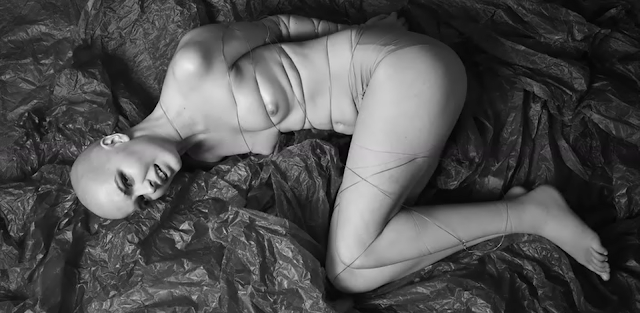A TEST OF YOUR NERVES - STRANGERS OF PATIENCE
The film that I’m going to talk about today is one that made
me think of this blog in the first place – a home for works which aren’t heard
of much. I still remember the evening in the year of 2018 – had it not been for a few friends who’d
gotten me to the film festival, which was dismal at the start (with a terrible
film, but I won’t name it now), I’d neither have known that such work ever
existed, nor would you be reading this now. As is typical of me, I’d walked
into the hall pretty late, but still managed to find a seat because it was the
last show that night, starting at some time around nine or nine-thirty, which
was pretty late for a weekday. When I’d begun watching the film, Andrei, the
supposed antagonist, as we begin to feel later in the movie, was eyeing this
woman in a light dress far from where all the action at his exhibition was –
which was in my opinion, probably the best place to start, especially since, a
re-watching of the movie, having procured a torrent after two years of
relentless searching revealed a rather weak start. The story itself, despite
its rather innocuous presentation had something much more primal, if not
sinister, at play.
Strangers of Patience (Russian: СТРАННИКИ ТЕРПЕНЬЯ) is a
2018 film by Vlademir Alenikov based on his novel by the same name (sometimes
translated to ‘Wanderers of Patience’), which begins with a shot very
reminiscent of The Shining’s first scene – with the camera covering a large
distance up above everything till it zeroed down to its area of interest. As a
matter of fact, though the film feels very much like the modern Russian
serials, in the sense of its style, it essentially bears resemblance and weird
reversals with the works of many revered filmmakers, while the foundation of
the film itself – the story, is as strong as the ground castles stand on.
Despite it’s low IMDB score, I think it fairly etches a place for Russian
filmmakers on the grounds of contemporary stories, unlike their general repute
for being expert storytellers whenever it came to historical drama. It’s first
few scenes, however, as I mentioned above, were really weak, more suited for
the medium of a novel – beginning with Andrei, a photographer who lives in a
big house with his dog Charlie, wearing a simple disguise to check people’s
natural reception of his work. Though this scene might not seem very important
to many, it does reveal a very important element of Andrei’s nature, as we
later learn – a love for voyeurism, something which was only strengthened more
in the scene where he preferred seeing the girl at a distance at the exhibition, over the ones who were actually interested in him. A weird turn of
events finally bring him the chance to talk to this very woman at a bar where
he asks the mute model to help him for a few shoots which she agrees to.
Things, however, take a turn for the worse, when Marina (the
model), is slowly held captive at Andrei’s place, from being taken pictures of
at compromising times, without her consent, to either chaining or cuffing her
to a post like she was no better than his dog who roamed about the house (and
just had a shorter leash when out on a walk) - all to appease his works’
voyeuristic angle: we are kept at the edge of our seats, waiting for the
cathartic moment – a time when Andrei’s sick experiment ends. But does the movie offer us catharsis? This is a question that’ll plague you for days once
you watch it till the end (ignoring the few places where there are some glaring
problems with the sound mixing, especially in cases of scene transitions where
the change in sound is abrupt – this is an area which had room for much
improvement in the film). Despite an hour and a half spent in the humongous
confines of the well-bedecked house, with photographs you can stare at till the
end of your days, until your guts curl at Marina’s plight while you compare it
to the first time you saw her, it’s the last few minutes, of Marina discovering
the photographs that Andrei had taken of her over those torturous days (the way
he chose to see her), and her chasing the police van that Andrei was being
transported in (remember the last scene from Che? by Roman Polanski, where Alex
runs after Nancy who had left for good at the back of the truck carrying pigs?)
– Andrei’s sight of her from behind the panes of the police car is sure to
stay with you once you see it. As a matter of fact, whenever I watch the scene,
I can hear the brimming applause in the hall from that night, over the
background music, and everything else, and once you do – I’m sure you’ll be
able to hear it as well.









So beautifully written!
ReplyDelete